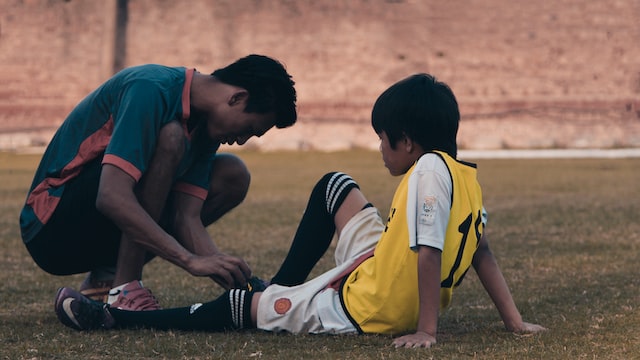Cramps tend to be caused by overexertion or dehydration, while pains can have a variety of causes. Cramps are usually caused by muscle spasms, while pains can be caused by various factors, including inflammation, muscle strain, and more.
What are cramps?
There are many different types of cramps, but the most common type is a muscle cramp. Muscle cramps can occur in any muscle group, but they are most common in the legs. Muscle cramps usually occur when the muscle is used too much or when it is held in one position for too long. They can also occur as a result of dehydration or electrolyte imbalance.
Cramps can also occur in other areas of the body, such as the stomach, uterus, or intestines. These types of cramps are usually caused by spasms of the muscles in these areas. Stomach cramps are often associated with indigestion or constipation. Uterine cramps are a symptom of menstrual periods. Intestinal cramps are often caused by gas or diarrhea.
What are pains?
There are two types of pain: acute and chronic. Acute pain is the kind you feel when you cut yourself or break a bone. It’s sharp and severe, but it usually goes away after a short time. Chronic pain is different. It’s ongoing and lasts for weeks, months, or even years. Some people live with chronic pain every day.
Chronic pain can be caused by many things, including injuries, illnesses, and conditions like arthritis. It can make everyday activities very difficult to do. People with chronic pain often have trouble sleeping and may feel depressed.
There are many ways to treat chronic pain, including medication, physical therapy, acupuncture, and massage. Some people find that a combination of treatments works best for them. Everyone is different, so it’s important to work with your doctor to find the best treatment plan for you.
Causes of cramps and pains
There are many potential causes of cramps and pains. Some common causes include:
-Dehydration: When the body is dehydrated, it can lead to muscle cramping.
-Overuse: Repeated use of a muscle can lead to cramping or pain.
-Injury: An injury to the muscle can cause cramping or pain.
-Medical conditions: There are some medical conditions that can cause cramps and pains, such as diabetes, thyroid problems, and pregnancy.
Treatment for cramps and pains
There are many over-the-counter medications that can be effective in treating cramps and pains. For cramps, pain relievers such as ibuprofen or naproxen can help. For more severe pain, prescription medications may be necessary.
For both cramps and pains, home remedies can also be effective. Soaking in a warm bath, applying a heating pad to the affected area, or massaging the area can all help to reduce pain and discomfort.
When to see a doctor for cramps and pains
There is no definitive answer to when you should see a doctor for cramps and pains. However, if you are experiencing severe or unusual pain, or if the pain is accompanied by other symptoms such as fever, nausea, or vomiting, it is advisable to seek medical attention. If you are unsure whether your symptoms warrant a trip to the doctor, you can always call your doctor’s office for advice.
Why do you get cramps?
There are several possible explanations for why you might experience cramps. One possibility is that you are dehydrated and need to drink more fluids. Another possibility is that your muscles are tired and need to be rested. It is also possible that you have a mineral imbalance, such as magnesium deficiency, which can cause cramps. Finally, it is possible that you are pregnant and the cramps are caused by the growing uterus putting pressure on nearby nerves and blood vessels. If you are concerned about your cramps, speak to your doctor for further evaluation.
Photo by Yogendra Singh on Unsplash








